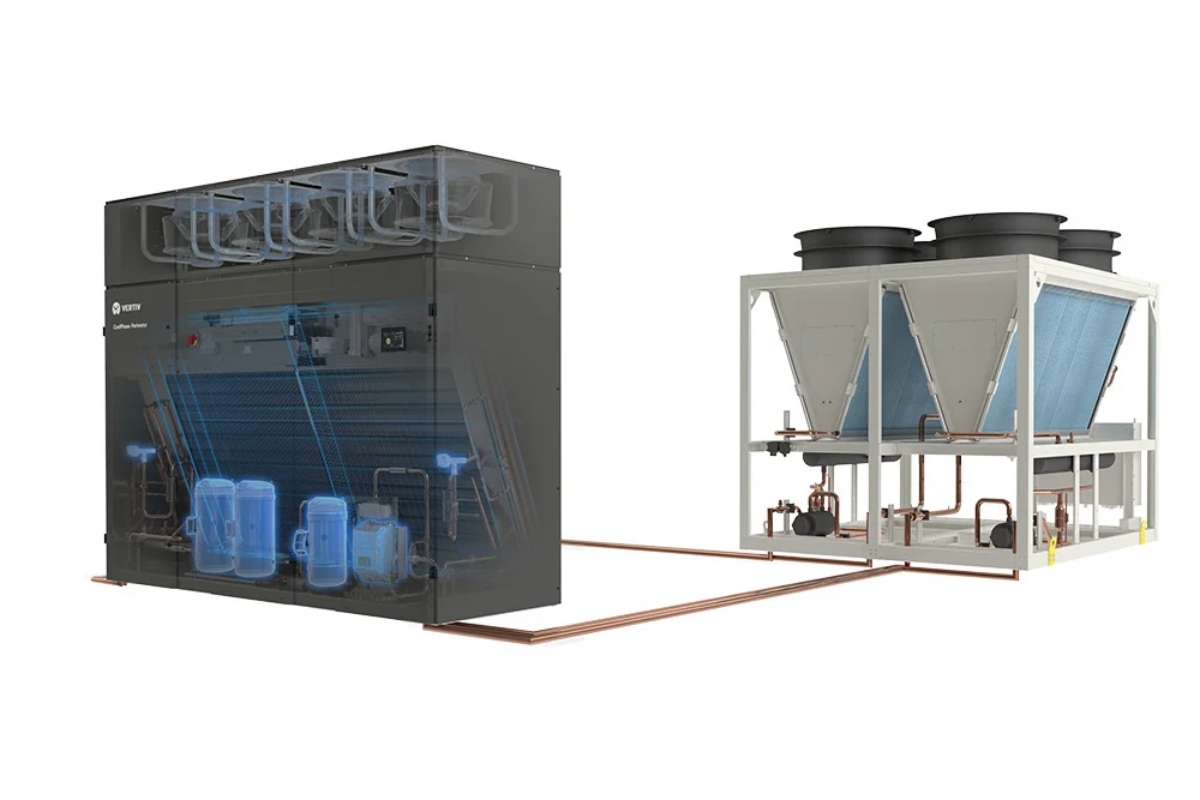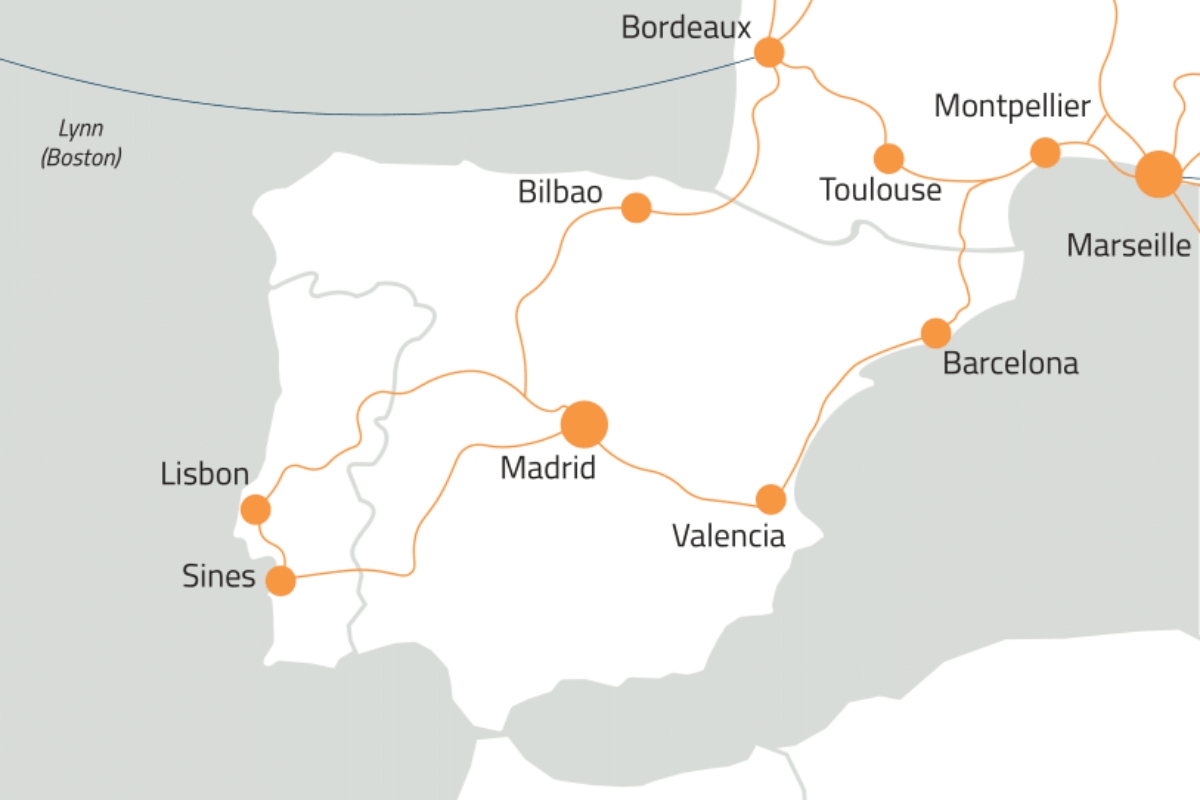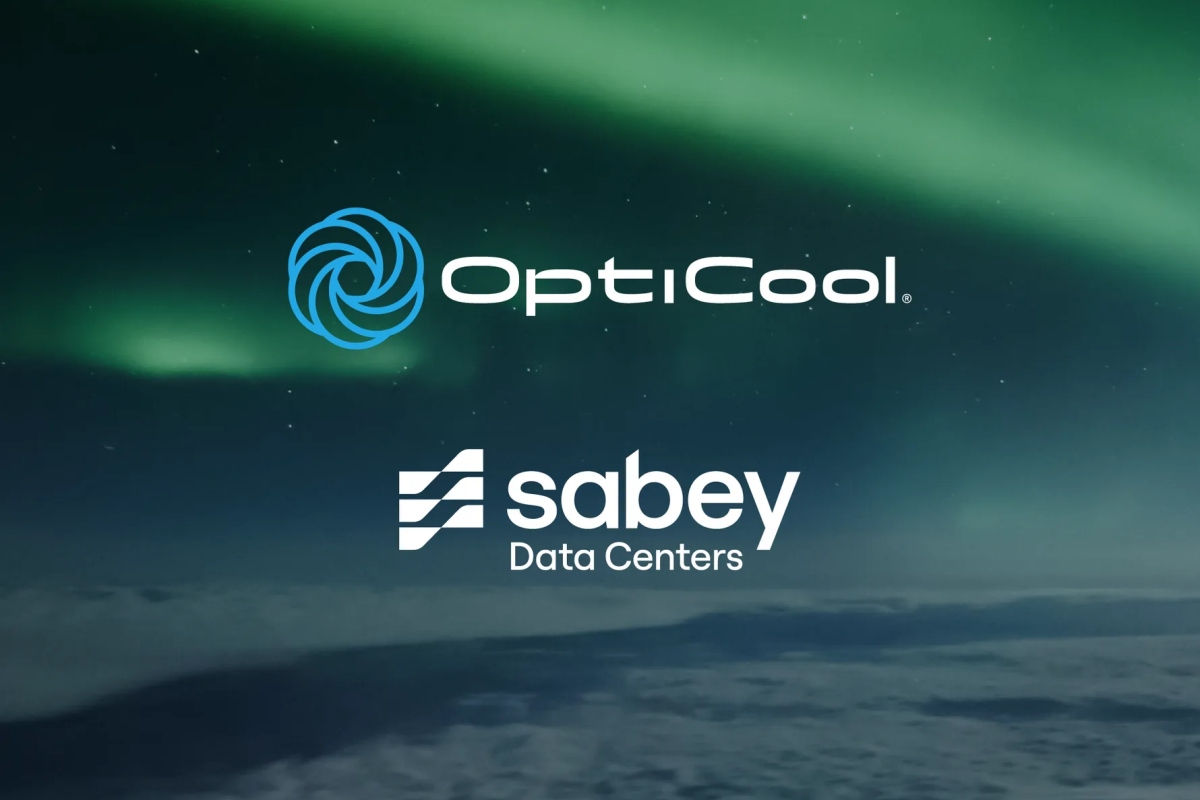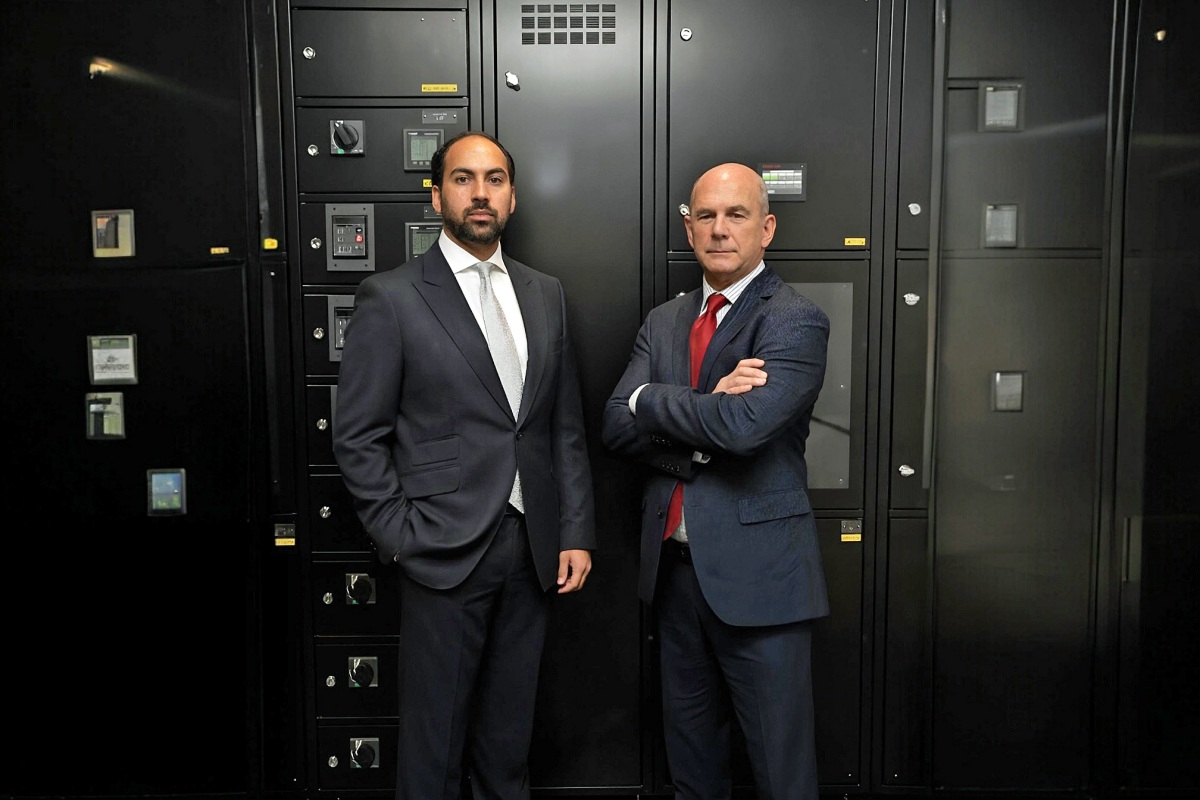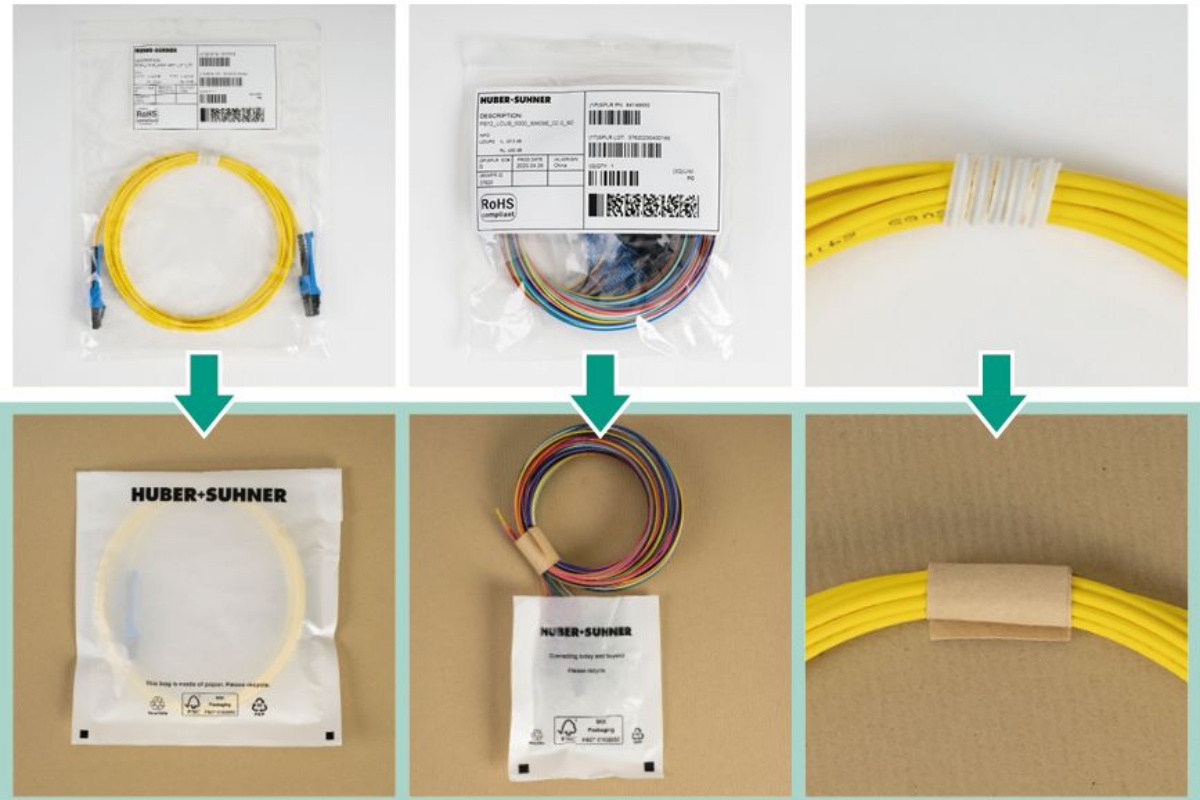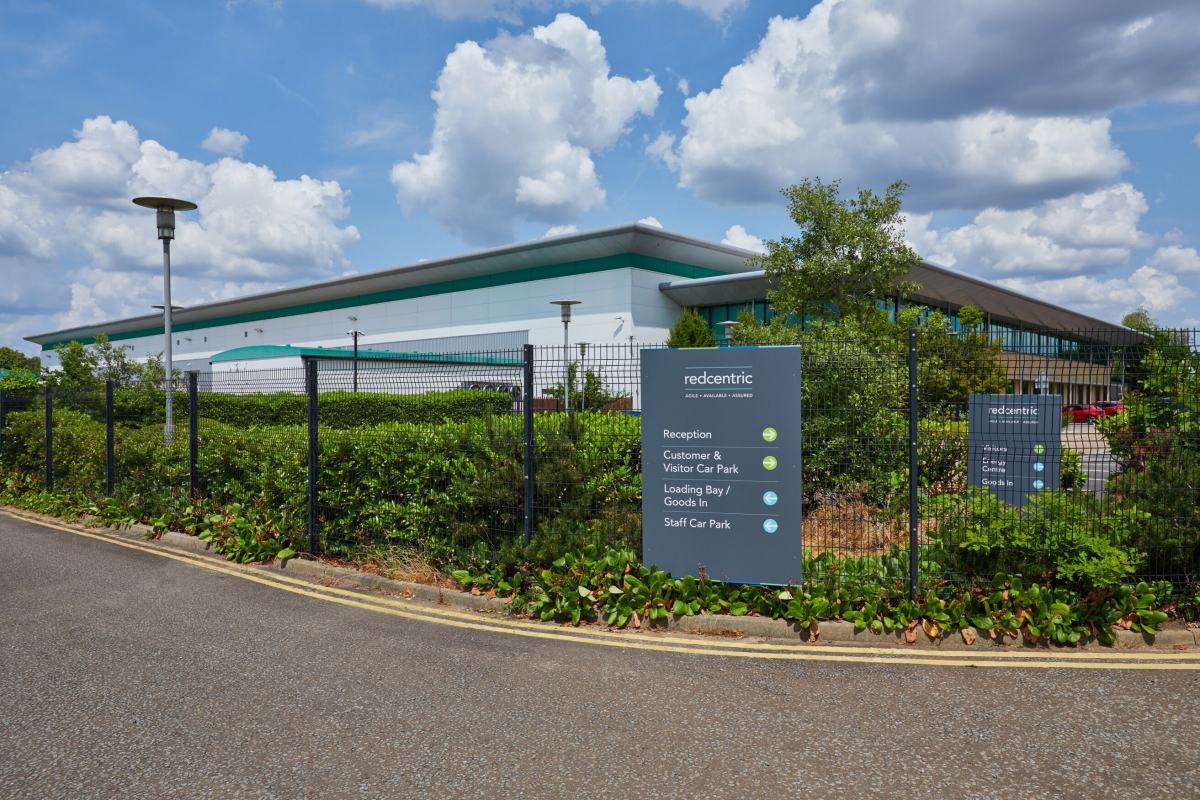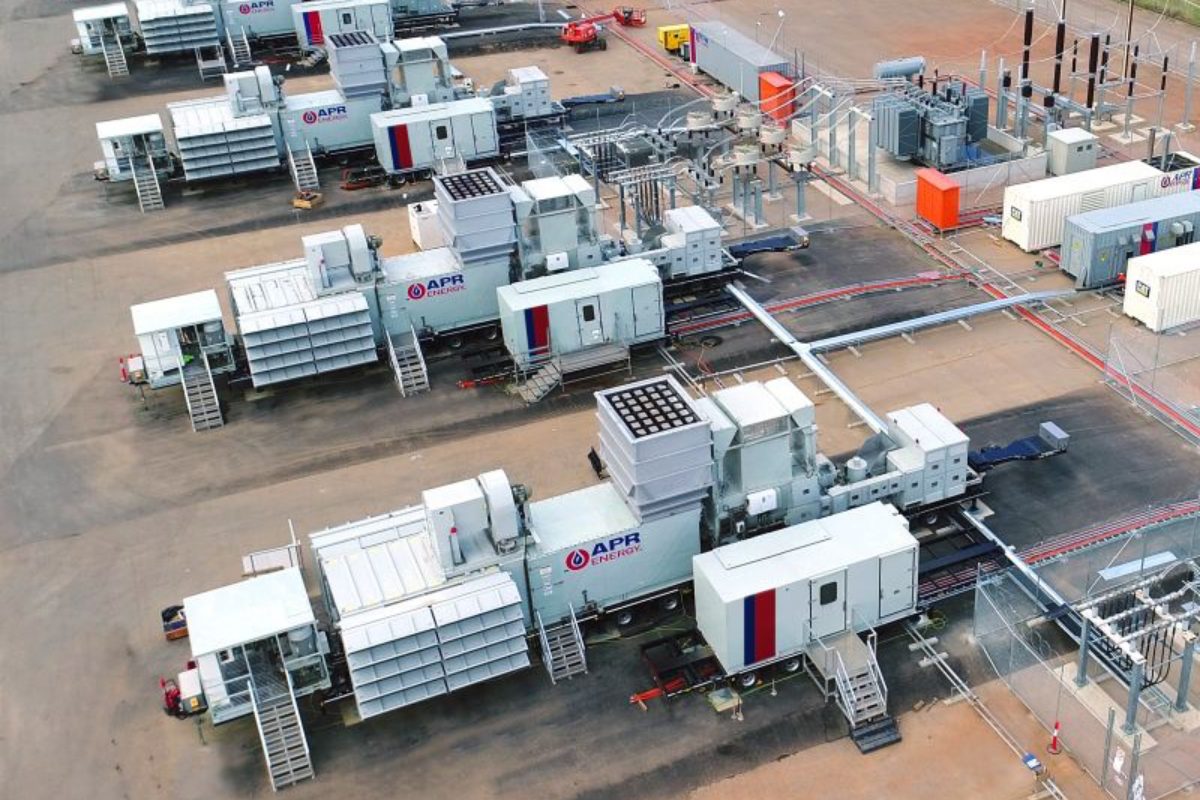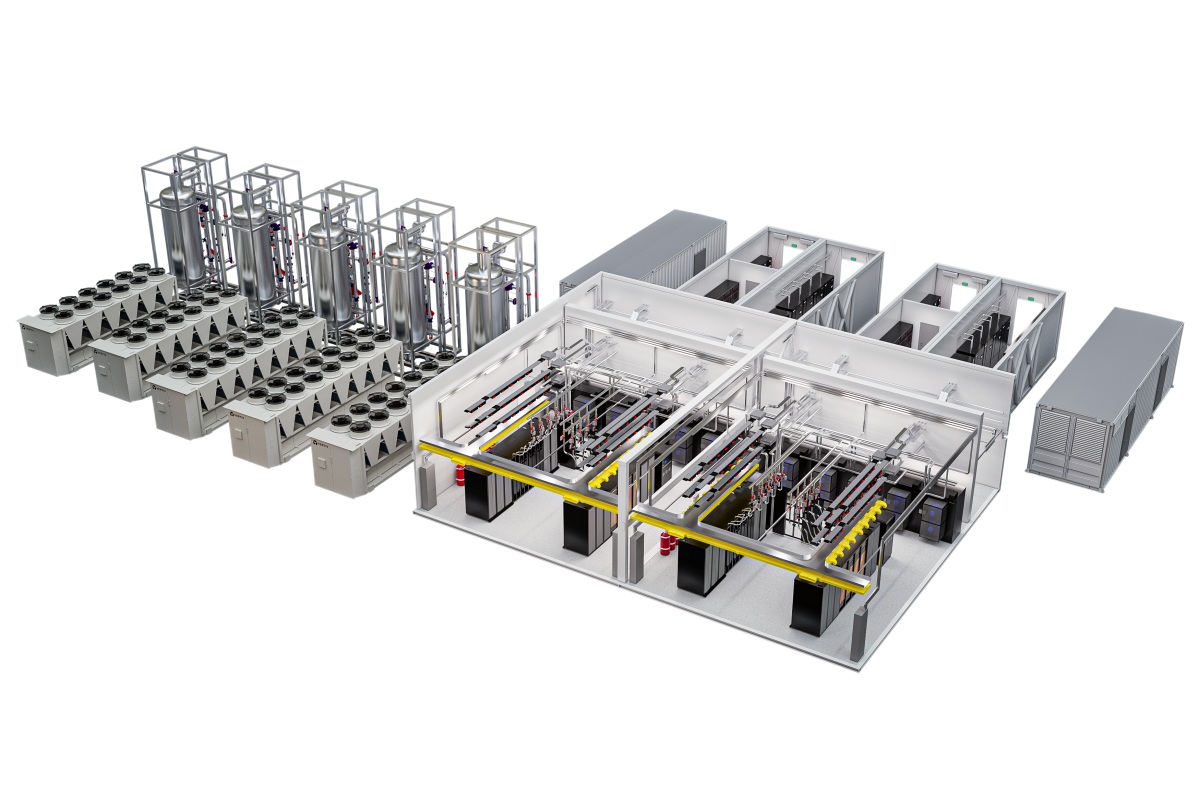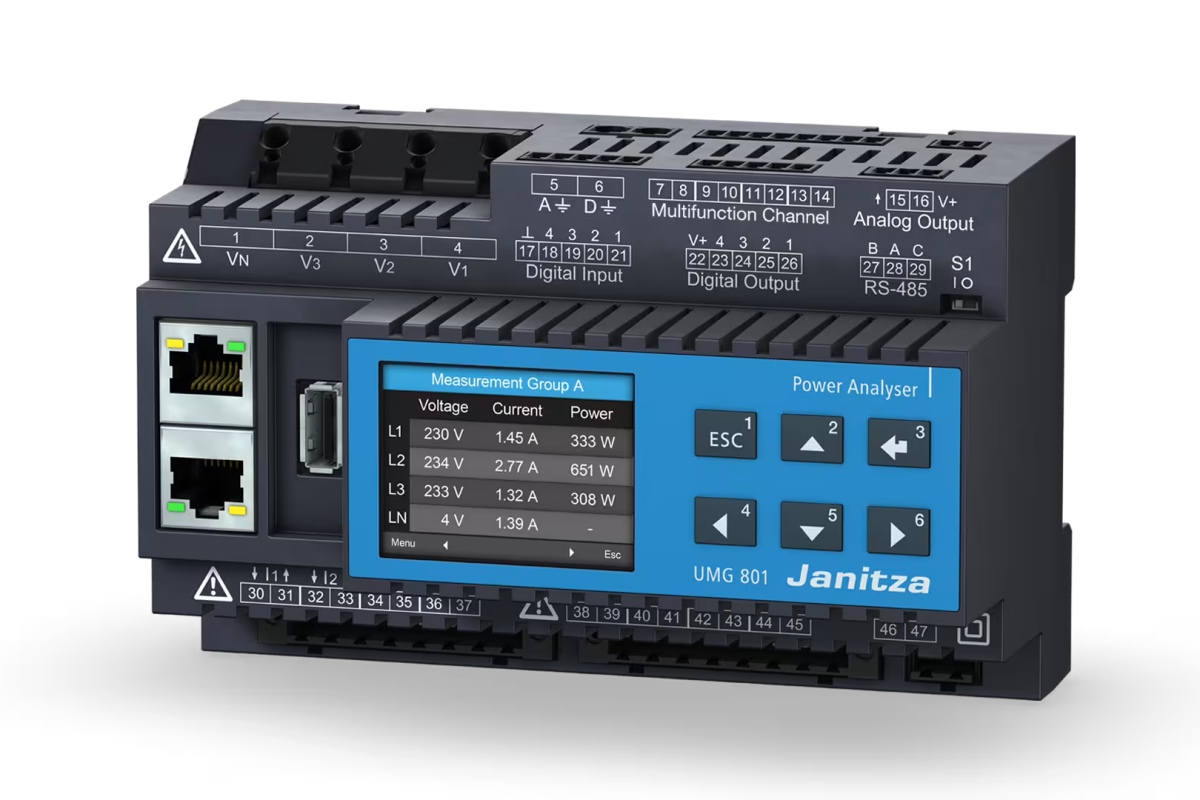Data Centre Infrastructure News & Trends
Data Centre Infrastructure News & Trends
Innovations in Data Center Power and Cooling Solutions
Products
Vertiv expands perimeter cooling range in EMEA
Vertiv, a global provider of critical digital infrastructure, has expanded its CoolPhase Perimeter PAM air-cooled perimeter cooling range with additional capacity options and the introduction of the CoolPhase Condenser, now available across Europe, the Middle East, and Africa (EMEA).
The update is aimed at small, medium, and edge data centre environments, with Vertiv stating that the expanded range is intended to improve energy efficiency and operational resilience while reducing overall operating costs and extending equipment life.
The CoolPhase Perimeter PAM has been developed for modern data centre requirements and now incorporates the EconoPhase Pumped Refrigerant Economizer, integrated within the CoolPhase Condenser system.
Vertiv says the approach is designed to increase free-cooling operation by using a pumped refrigerant circuit that consumes less power than conventional compressor-based systems and reduces space requirements.
The range uses R-513A refrigerant, which has a lower global warming potential than R-410A and is non-flammable with low toxicity. The company notes that this aligns the system with EU F-Gas Regulation 2024/573 and supports operators seeking to reduce emissions while maintaining cooling capacity.
Designed for efficiency and regulatory compliance
Sam Bainborough, VP Thermal Management, EMEA at Vertiv, explains, “With this latest addition to the Vertiv CoolPhase Perimeter PAM range, we're making our direct expansion offering more flexible while addressing two critical challenges faced by data centre operators today: environmental compliance and operational efficiency.
“The new air-cooled models boost free-cooling capabilities to lower PUE, demonstrating our commitment to providing energy-efficient and environmentally responsible options.”
The CoolPhase Perimeter PAM includes variable-speed compressors, staged coils, and patented filtration technology, and integrates with CoolPhase Condenser units using the Liebert iCOM control platform.
The range forms part of Vertiv’s wider thermal portfolio and is supported by the company’s service organisation, covering design, commissioning, and ongoing operational support.
For more from Vertiv, click here.
Joe Peck - 21 January 2026
Data Centre Infrastructure News & Trends
Enterprise Network Infrastructure: Design, Performance & Security
Sponsored
Molex turns infrastructure into advantage
Today’s data centres and enterprises face pressure to move faster, scale seamlessly, and maintain uptime. The network infrastructure beneath it all can’t just keep up; it must lead the way.
For over 40 years, Molex has helped organisations rethink structured cabling as a strategic asset. Its 'Enterprise Cabling Infrastructure' delivers scalable copper and fibre systems for buildings across sectors. Its 'Data Center Solutions' extend that reliability to high-density optical fibre environments, enabling faster deployment and effortless growth.
With proven global expertise and end-to-end support, Molex turns infrastructure into advantage, backed by a 25-year System Performance and Application Assurance Warranty.
What sets Molex apart
• Design for what’s next - infrastructure built to handle tomorrow’s requirements
• One ecosystem - copper, fibre, and accessories engineered to work seamlessly together
• Global reach - technical experts and installers in more than 50 countries
• Assured performance - every installation guaranteed for reliability and longevity
• Tailored collaboration - custom solutions engineered around you
For more from Molex, click here.
Joe Peck - 20 January 2026
Data Centre Infrastructure News & Trends
Enterprise Network Infrastructure: Design, Performance & Security
News
Zayo Europe partners with Reintel for network in Iberia
Network infrastructure provider Zayo Europe has announced a partnership with Reintel, a dark fibre operator in Spain, to expand its service offering across Iberia.
The deal marks a milestone as Zayo Europe brings its 400GE enabled wavelength network to the Iberian Peninsula as well as expanding its Tier-1 IP offering to Portugal and to more Spanish cities.
Carriers and enterprises in the region can now connect to Zayo Europe’s network, which links over 600 data centres across Europe.
The collaboration will aim to deliver low-latency, high-capacity connectivity across Iberia, connecting key business hubs including Madrid, Lisbon, Barcelona, Bilbao, and Sines.
This new route will seek to enhance network diversity, reduce deployment times, and strengthen connectivity options for businesses and carriers operating in the region.
Spanning over 3,500km of fibre across Iberia, Zayo Europe's network will enable DC-to-DC connectivity, faster cloud adoption, and high-performance handling of data-intensive workloads.
The move also strengthens Zayo Europe’s global reach, linking Iberia to international networks across the Mediterranean and Atlantic and supporting the digital transformation of businesses across multiple continents.
Emerging data centre hubs
Colman Deegan, CEO at Zayo Europe, comments, “This partnership marks another important step in Zayo Europe’s journey to connect the continent’s most dynamic markets.
"Spain and Portugal are quickly emerging as major data centre hubs, with a strong supply of renewable energy driving new investments to power AI and other cutting-edge technologies.
“We’re delighted to partner with Reintel, who operate the highest quality mission-critical fibre infrastructure in the region. By extending our network through their low-latency, high-availability fibre routes, we’re enabling enterprises, data centres, and carriers across Iberia to access our extensive high-performance connectivity that underpins Europe’s innovation economy.
"Following our recent expansion in the German market, Iberia becomes the next strategic link in furthering the reach of our pan-European network. With the significant DC rollout planned in 2026, Zayo Europe is poised to set connectivity trends for the decade ahead.”
Francisco J. Blanca Patón, CEO at Reintel, adds, “Zayo Europe’s expansion into Iberia aligns perfectly with our mission to accelerate Spain’s digital transformation.
"Combining our extensive dark fibre footprint with Zayo Europe’s international network and unparalleled service excellence creates powerful opportunities for customers across the region.
“This partnership will empower data centres and businesses across Spain and Portugal to keep pace with rising data demands and, ultimately, strengthen Europe’s digital backbone. We look forward to what can be achieved together through 2026 and beyond.”
For more from Zayo Europe, click here.
Joe Peck - 20 January 2026
Data Centre Infrastructure News & Trends
Innovations in Data Center Power and Cooling Solutions
Liquid Cooling Technologies Driving Data Centre Efficiency
Sabey Data Centers partners with OptiCool Technologies
Sabey Data Centers, a data centre developer, owner, and operator, has announced a partnership with OptiCool Technologies, a US manufacturer of refrigerant-based cooling systems for data centres, to support higher-density computing requirements across its US facilities.
The collaboration sits within Sabey’s integrated cooling programme, which aims to ease adoption of liquid cooling approaches as processing demand increases, particularly for AI applications.
Sabey says the partnership will broaden the range of cooling technologies available to customers across its portfolio, providing a practical route to denser deployments.
OptiCool supplies two-phase refrigerant pumped systems designed for data centre use. The non-conductive refrigerant absorbs heat at the rack through phase change, removing heat without chilled water, large mechanical infrastructure, or significant data hall changes.
Sabey states that the method can support increased density while reducing energy use and simplifying plant design.
Supporting higher-density and liquid cooling uptake
John Sasser, Chief Technical Officer at Sabey Data Centers, comments, “Partnering with OptiCool allows us to offer a cooling pathway that is both efficient and flexible.
"Together, we’re making it easier for customers to deploy advanced liquid cooling while maintaining the operational clarity and reliability they expect.”
Lawrence Lee, Chief Channel Officer at OptiCool, adds, “By working with Sabey, we’re able to bring our two-phase refrigerant systems into facilities designed to support the next generation of compute.
"This partnership helps customers move forward with confidence as they transition to more advanced cooling architectures.”
For more from Sabey Data Centers, click here.
Joe Peck - 19 January 2026
Data Centre Infrastructure News & Trends
Data Centre Operations: Optimising Infrastructure for Performance and Reliability
Innovations in Data Center Power and Cooling Solutions
Modular Data Centres in the UK: Scalable, Smart Infrastructure
Prism expands into the US market
Prism Power Group, a UK manufacturer of electrical switchgear and critical power systems for data centres, is looking to purchase a US business that already has UL Certification (for compliance, safety, and quality assurance regulations) and is reportedly raising $40 million (£29.8 million) for the acquisition.
With surging data centre demand straining power infrastructure and outpacing domestic capacity, US developers are actively seeking trusted overseas suppliers to keep pace.
Prism says it is well placed to take advantage of the current climate, having forged its reputation in mechanical and electrical infrastructure for modular data centre initiatives in the UK and across Europe since 2005.
It adds that its engineers have executed a variety of end-to-end installations, from high-voltage substations and backup generators to low-voltage switchboards that safeguard servers, in "tightly scheduled" data centre projects.
Expansion to meet ongoing supply strain
Adhum Carter Wolde-Lule, Director at Prism Power Group, explains, “The scale and urgency is such that America’s data centre expansion has become an international endeavour, and we’re again able to punch well above our weight in providing the niche expertise that’s missing and will augment strained local supply chains on the ground, straight away.
“Major power manufacturers in the United States are ramping up production, while global giants have announced new stateside factories for transformers and switchgear components, aiming to cut lead times and ease the backlog - but those investments will take years to bear fruit and that is time the US data centre market simply doesn’t have.”
Keith Hall, CEO at Prism Power Group, adds, “For overseas engineering companies like us [...], the time is now and represents an exceptional opening into the world’s fastest-growing infrastructure market.
"Equally, for the US sector, the willingness to look globally for critical power systems excellence will prove vital in keeping ambitious build-outs on schedule and preventing the data centre explosion from hitting a capacity wall.”
Joe Peck - 19 January 2026
Data Centre Build News & Insights
Data Centre Infrastructure News & Trends
Enterprise Network Infrastructure: Design, Performance & Security
Sustainable Infrastructure: Building Resilient, Low-Carbon Projects
Huber+Suhner expands sustainable packaging drive
Huber+Suhner, a Swiss fibre optic cable manufacturer, has broadened the use of recycled and recyclable packaging across its fibre optic portfolio as part of its ongoing sustainability programme.
The company has removed more than 743,000 single-use plastic bags, substituted approximately 1.5 million cable ties, and replaced 35,500 blister packages with recycled polyethylene terephthalate. 11 product families are now covered by the initiative.
Lana Ollier, Head of Global Sustainability at Huber+Suhner, says, “Removing single-use plastic items and moving more product families to recyclable and sustainable materials show what’s possible when sustainability is designed in, not added on.”
Less waste and lower packaging emissions
The measures include FSC-certified, recyclable paper packaging for connector and cable assemblies, and recycled PET for fibre modules including LISA, SYLFA HD, and IANOS.
Huber+Suhner reports improvements in handling, dust protection, and transport weight. Verified lifecycle assessments indicate that blister packaging emissions have been reduced by around 50% for selected modules when compared with traditional plastics.
The changes are intended to cut on-site material waste and ease installation through simplified paper formats and stackable blister trays.
Following positive feedback, the company says its sustainable packaging approach will extend to 17 fibre optic product families during 2026.
For more from Huber+Suhner, click here.
Joe Peck - 19 January 2026
Data Centre Build News & Insights
Data Centre Infrastructure News & Trends
Data Centre Projects: Infrastructure Builds, Innovations & Updates
Innovations in Data Center Power and Cooling Solutions
Multi-million pound Heathrow data centre upgrade completed
Managed IT provider Redcentric has completed a multi-million pound electrical infrastructure upgrade at its Heathrow Corporate Park data centre in London.
The project was partly funded through the Industrial Energy Transformation Fund, which supports high-energy organisations adopting lower-carbon technologies. The programme included replacement of legacy uninterruptible power supplies (UPS).
As part of the upgrade, Centiel supplied StratusPower modular UPS equipment to protect an existing 7 MW critical load. Redcentric states the system design allows the facility to increase capacity to 10.5 MW without additional infrastructure work.
The site reports a rise in UPS operating efficiency from below 90% to more than 97%, which could reduce future emissions over the expected lifecycle of the equipment.
Modular UPS deployment and installation
Paul Hone, Data Centre Facilities Director at Redcentric, comments, “Our London West colocation data centre is a strategically located facility that offers cost effective ISO-certified racks, cages, private suites, and complete data halls, as well as significant on-site office space. The data centre is powered by 100% renewable energy, sourced solely from solar, wind, and hydro.
“In 2023 we embarked on the start of a full upgrade across the facility which included the electrical infrastructure and live replacement of legacy UPS before they reached end of life. This part of the project has now been completed with zero downtime or disruption.
“In addition, for 2026, we are also planning a further deployment of 12 MW of power protection from two refurbished data halls being configured to support AI workloads of the future.”
Aaron Oddy, Sales Manager at Centiel, adds, “A critical component of the project was the strategic removal of 22 MW of inefficient, legacy UPS systems. By replacing outdated technology with the latest innovation, we have dramatically improved efficiency delivering immediate and substantial cost savings.
“StratusPower offers an exceptional 97.6% efficiency, dramatically increasing power utilisation and reducing the data centre's overall carbon footprint - a key driver for Redcentric.
“The legacy equipment was replaced by Centiel’s StratusPower UPS system, featuring 14x500kW Modular UPS Systems. This delivered a significant reduction in physical size, while delivering greater resilience as a direct result of StratusPower’s award-winning, unique architecture.
Durata carried out the installation work.
Paul Hone concludes, “Environmental considerations were a key driver for us. StratusPower is a truly modular solution, ensuring efficient running and maintenance of systems. Reducing the requirement for major midlife service component replacements further adds to its green credentials.
“With no commissioning issues [and] zero reliability challenges or problems with the product, we are already talking to the Centiel team about how they can potentially support us with power protection at our other sites.”
For more from Centiel, click here.
Joe Peck - 16 January 2026
Data Centre Infrastructure News & Trends
Innovations in Data Center Power and Cooling Solutions
News
APR increases power generation capacity to 1.1GW
APR Energy, a US provider of fast-track mobile gas turbine power generation for data centres and utilities, has expanded its mobile power generation fleet after acquiring eight gas turbines, increasing its owned capacity from 850 MW to more than 1.1 GW.
The company says the investment reflects rising demand from data centre developers and utilities that require short-term power to support growth while permanent grid connections are delayed.
APR currently provides generation for several global customers, including a major artificial intelligence data centre operator.
Across multiple regions, new transmission and grid reinforcement projects are taking years to deliver, creating a gap between available power and the needs of electricity-intensive facilities.
APR reports growing enquiries from data centre operators that require capacity within months rather than years.
Rapid deployment for interim power
The company says its turbines can typically be delivered, installed, and brought online within 30 to 90 days, enabling organisations to progress construction schedules and maintain service reliability while longer-term infrastructure is built.
Chuck Ferry, Executive Chairman and Chief Executive Officer of APR Energy, comments, “The demand we are seeing is immediate and substantial.
“Data centres and utilities need dependable power now. Expanding our capacity allows us to meet that demand with speed, certainty, and proven execution.”
APR states that the expanded fleet positions it to support data centre growth at a time when grid access remains constrained, combining rapid deployment with operational experience across international markets.
Joe Peck - 16 January 2026
Data Centre Infrastructure News & Trends
Innovations in Data Center Power and Cooling Solutions
Liquid Cooling Technologies Driving Data Centre Efficiency
Products
Vertiv launches new MegaMod HDX configurations
Vertiv, a global provider of critical digital infrastructure, has introduced new configurations of its MegaMod HDX prefabricated power and liquid cooling system for high-density computing deployments in North America and EMEA.
The units are designed for environments using artificial intelligence and high-performance computing and allow operators to increase power and cooling capacity as requirements rise.
Vertiv states the configurations give organisations a way to manage greater thermal loads while maintaining deployment speed and reducing space requirements.
The MegaMod HDX integrates direct-to-chip liquid cooling with air-cooled systems to meet the demands of pod-based AI and GPU clusters.
The compact configuration supports up to 13 racks with a maximum capacity of 1.25 MW, while the larger combo design supports up to 144 racks and power capacities up to 10 MW.
Both are intended for rack densities from 50 kW to above 100 kW.
Prefabricated scaling for high-density sites
The hybrid architecture combines direct-to-chip cooling with air cooling as part of a prefabricated pod.
According to Vertiv, a distributed redundant power design allows the system to continue operating if a module goes offline, and a buffer-tank thermal backup feature helps stabilise GPU clusters during maintenance or changes in load.
The company positions the factory-assembled approach as a method of standardising deployment and planning and supporting incremental build-outs as data centre requirements evolve.
The MegaMod HDX configurations draw on Vertiv’s existing power, cooling, and management portfolio, including the Liebert APM2 UPS (uninterruptible power supply), CoolChip CDU (cooling distribution unit), PowerBar busway system, and Unify infrastructure monitoring.
Vertiv also offers compatible racks and OCP-compliant racks, CoolLoop RDHx rear door heat exchangers, CoolChip in-rack CDUs, rack power distribution units, PowerDirect in-rack DC power systems, and CoolChip Fluid Network Rack Manifolds.
Viktor Petik, Senior Vice President, Infrastructure Solutions at Vertiv, says, “Today’s AI workloads demand cooling solutions that go beyond traditional approaches.
"With the Vertiv MegaMod HDX available in both compact and combo solution configurations, organisations can match their facility requirements while supporting high-density, liquid-cooled environments at scale."
For more from Vertiv, click here.
Joe Peck - 15 January 2026
Data Centre Infrastructure News & Trends
Innovations in Data Center Power and Cooling Solutions
Products
Janitza launches UMG 801 power analyser
Modern data centres often face a choice between designing electrical monitoring systems far beyond immediate needs or replacing equipment as sites expand.
Janitza, a German manufacturer of energy measurement and power quality monitoring equipment, says its UMG 801 power analyser is designed to avoid this issue by allowing users to increase capacity from eight to 92 current measuring channels without taking systems offline.
The analyser is suited to compact switchboards, with a fully expanded installation occupying less DIN rail space than traditional designs that rely on transformer disconnect terminals.
Each add-on module introduces eight additional measuring channels within a single sub-unit, reducing physical footprint within crowded cabinets.
Expandable monitoring with fewer installation constraints
The core UMG 801 unit supports ten virtual module slots that can be populated in any mix. These include conventional transformer modules, low-power modules, and digital input modules.
Bridge modules allow measurement points to be located up to 100 metres away without consuming module capacity, reducing wiring impact and installation complexity.
Sampling voltage at 51.2 kHz, the analyser provides Class 0.2 accuracy across voltage, current, and energy readings. This level of precision is used in applications such as calculating power usage effectiveness (PUE) to two decimal places, as well as assessing harmonic distortion that may affect uninterruptible power supplies (UPS).
Voltage harmonic analysis extends to the 127th order, and transient events down to 18 microseconds can be recorded. Onboard memory of 4 GB also ensures data continuity during network disruptions.
The system is compatible with ISO 50001 energy management frameworks and includes two ethernet interfaces that can operate simultaneously to provide redundant communication paths.
Native OPC UA and Modbus TCP/IP support enable direct communication with energy management platforms and legacy supervisory control systems, while whitelisting functions restrict access to approved devices. RS-485 additionally provides further support for older infrastructure.
Configuration is carried out through an integrated web server rather than proprietary software, and an optional remote display allows monitoring without opening energised cabinets.
Installations typically start with a single base unit at the primary distribution level, with additional modules added gradually as demand grows, reducing the need for upfront expenditure and avoiding replacement activity that risks downtime.
Janitza’s remote display connects via USB and mirrors the analyser’s interface, providing visibility of all measurement channels from the switchboard front panel. Physical push controls enable parameter navigation, helping users access configuration and measurement information without opening the enclosure.
The company notes that carrying out upgrades without interrupting operations may support facilities that cannot accommodate downtime windows.
For more from Janitza, cick here.
Joe Peck - 13 January 2026

Head office & Accounts:
Suite 14, 6-8 Revenge Road, Lordswood
Kent ME5 8UD
T: +44 (0)1634 673163
F: +44 (0)1634 673173
